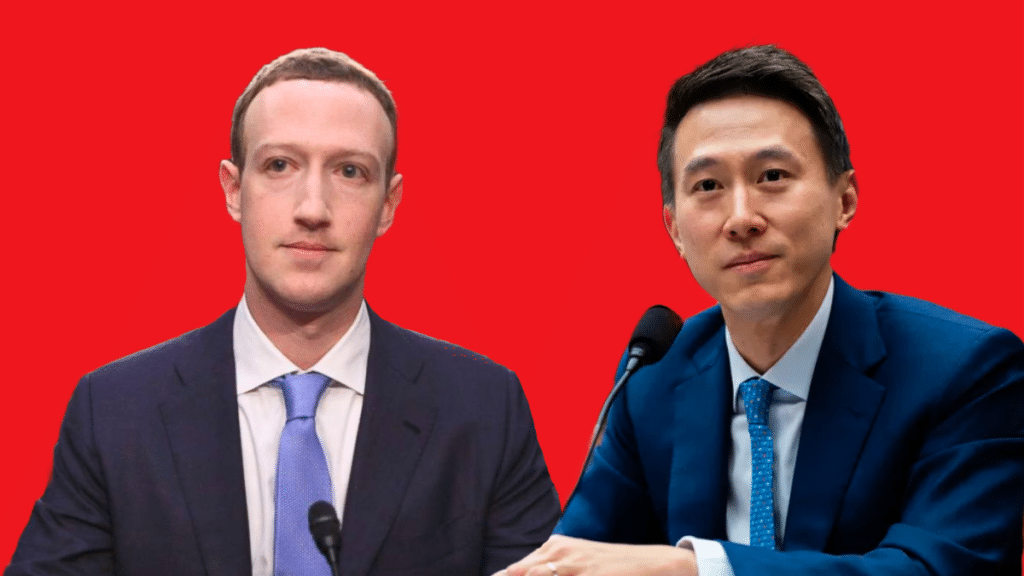Congress Deserves Its Share of Blame for TikTok’s Harms
Justin Hendrix / Mar 25, 2023Justin Hendrix is CEO and Editor of Tech Policy Press. The views expressed here are his own.

The hearing was billed as an opportunity for lawmakers to get to the bottom of issues ranging from data privacy to national security to consumer protection. One lawmaker referred to “alarming” revelations in recent months, including how “foreign actors” abuse the social media platform to “take millions of Americans' personal information without their knowledge in order to manipulate public opinion,” while another worried about how it might “hurt people’s mental health, especially young people.” Yet another brought up the platform’s racially discriminatory practices.
The CEO, in a dark suit, crisp shirt and blue tie, extolled the values of free expression, but reassured the lawmakers that when violative content is discovered, it is removed. He defended the company’s use of personal data, and suggested he would welcome new privacy regulations. He promised lawmakers he took their concerns seriously, and committed to changes that would better protect the American people. And on numerous occasions, he promised he’d have his staff follow up on questions posed by lawmakers for which he did not have an immediate answer.
Of course, that CEO was Facebook founder Mark Zuckerberg, in his 2018 testimony before the Senate’s Commerce and Judiciary committees. That there are so many obvious parallels to the dialogue between lawmakers and TikTok CEO Shou Chew in this week’s hearing in the House Energy & Commerce Committee underscores a crucial fact that was lost in the blizzard of pointed questions, open disdain, and at times xenophobic vitriol directed at him: Congress needs to accept its share of blame for the harms of TikTok. The failure of lawmakers to pass any significant statute to address the dangers of social media is what created the conditions for TikTok’s extraordinary growth.
There were glimmers of self-awareness from the lawmakers during this week's hearing, to be sure:
- Ranking Member Frank Pallone (D-NJ) noted that “this committee has heard from senior executives of other social media platforms about troubling and repeated instances where they put profits over people.”
- Rep. Kathy Castor (D-FL) pointed out that lawmakers have mounds of evidence about the potential harms of social media, from privacy to children’s mental health to national security. She referenced the testimony of prior whistleblowers, such as Frances Haugen, as well as an emerging body of research that has “explained the correlation between social media usage and body dissatisfaction, disordered eating habits, anxiety, depression, self-injury, suicide ideation, and cyberbullying.”
- Rep. Jay Obernolte (R-CA) noted that when it comes to the abuse of privacy, “it's not just TikTok, it's all our social media companies that are doing this.”
Yet especially when it comes to privacy concerns, the reality that this is a problem for social media companies generally undercuts the primary logic for a TikTok ban. As Washington Post staff writer Will Oremus pointed out, “reams of data on Americans’ shopping habits, browsing history and real-time location, collected by websites and mobile apps, is bought and sold on the open market in a multi-hundred-billion-dollar industry. If the Chinese Communist Party wanted that data, it could get huge volumes of it without ever tapping TikTok.”
Indeed. TikTok is not a product of Chinese communism, it is a product of American surveillance capitalism. If Congress wants to address the app’s underlying harms, it should ban surveillance advertising, not TikTok.
One lawmaker who appears to understand this most clearly is Rep. Alexandria Ocasio-Cortez (D-NY), who is not a member of the Energy & Commerce Committee. In a video (on TikTok- her first on the platform), she explained the crux of the matter:
Some of the arguments about banning TikTok have come with respect to discussions around Chinese surveillance and utilization of data that is tracked, and the enormous amount of tracking on U.S. citizens and data that is harvested by TikTok. And they say because of this egregious amount of data harvesting, we should ban this app. However, that doesn’t really address the core of the issue, which is the fact that major social media companies are allowed to collect troves of deeply personal data about you that you don’t know about without really any significant regulation whatsoever. In fact, the United States is one of the only developed nations in the world that has no significant data or privacy protection laws on the books.
Energy & Commerce Committee Chair Cathy McMorris Rodgers (R-WA) and Ranking Member Pallone, of course, are two of the primary architects of a potential solution, along with Rep. Jan Schakowsky (D-IL) and Rep. Gus Bilirakis (R-FL). But in the last Congress, lawmakers failed to advance their American Data Privacy and Protection Act, despite bipartisan approval in the House Energy & Commerce Committee and overwhelming public support for its key provisions. If they want to truly protect the U.S. from the harms of TikTok, then the leaders of both parties should focus their members less on whether Xi Jinping is using TikTok to propagandize Americans and more on how to move such legislation forward.
“Our first priority should be in protecting your ability to exist without social media companies harvesting and commodifying every single piece of data about you without you and without your consent,” said Rep. Ocasio-Cortez. That calls for less hearings, and more action. No more theater with contrite executives in dark suits, crisp shirts, and blue ties; we’ve heard enough promises. If Congress can’t deliver on that most basic priority, then it must accept its portion of blame for all the harms that follow.
Authors
